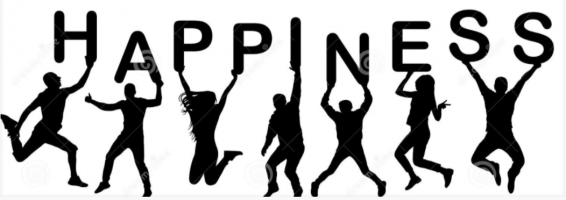
Happiness: Your Well-Being by LM Huggins
August 25, 2020
Take the Cure for the Coronavirus, Part Two by Robert W. Peck
August 27, 2020Fear Works on Current Pandemics and Future Calamities, Too
Over a decade ago, I heard a teaching series titled “Pulling the Plug on Fear.” I listened to the series several times to get the message drilled deep down into me. I have practiced the Biblical precepts of that teaching on fear for so long it has become my primary nature in life to, simply, give no place to fear. Fear is no longer a factor for consideration in any matter of my life.
The command to “Fear Not” (in its varying forms) is recorded in scripture, perhaps more often than any other. It’s as clear as “thou shalt not steal,” or “thou shalt not kill.” Therefore, fear is as clearly sin (i.e., error, or missing the mark) as to lie or commit adultery as it deviates from our maker’s design for us.
Not only is fear a clear violation of a direct command of our king and the laws of his kingdom, but it’s one of the most spiritually dangerous activities in which we can engage. Fear is a chief tactic of Satan that he uses to bring people into bondage and subject them to torment (Romans 8:15, Hebrews 2:15, 1 John 4:18). Faith and fear are direct spiritual opposites that are mutually exclusive. Fear negates faith. Therefore, yielding to fear renders the lives of born-again believers spiritually ineffective. Any Christian endeavor impregnated with fear will be stillborn.
Fear is a belief in the power of evil to harm us and expectation of its doing so. Faith is the belief in the power and promises of God to deliver us from evil and expectation of His doing so.
Thanks to that teaching about pulling the plug on fear, and decades of practicing it, the thought of fearing coronavirus hasn’t even been a consideration for me. That’s not boasting. That’s a testimony as to the effect of a lifestyle of practicing what God says.
However, as I was driving down the street one day, a few weeks after the onset of full-blown coronavirus panic pandemic, it occurred to me that simply not fearing is defensive in nature. I found myself questioning whether there was an offensive course of action that I should also be taking.
After hitting the fast-food drive-through window for a breakfast burrito, and the gas station for a cup of coffee (the gas station has stronger coffee), I began to endeavor to describe to God what I thought would be a long and complicated question and prayer project of asking what proactive, offensive measures to take. However, before I could finish framing the question, the Lord interrupted me with Psalm 91 playing in my head. I’ve become so conscious of the Holy Spirit’s leading, and quick to respond, that He only had to interrupt my prayer two or three times before I caught on and realized He was giving me the answer.
Praying Psalm 91 is the offensive measure to take against coronavirus and the fear it’s engendering. For that matter, it’s an effective weapon to use on any pandemic or general calamity coming on the world around us. Of course, any and every promise of God’s word can be used as an offensive weapon as per Ephesians 6:17, which calls the word of God, “the sword of the Spirit.” But for the present matter, the Lord directed me to Psalm 91.
When Jairus received the news that his daughter was dead, Jesus told him to “Fear not: believe only” (Luke 8:50). In every peril of life, the goal is first to avert the impending disaster, then overcome it and achieve victory. God is telling us that the way not to be destroyed, but to overcome, is first to say “No” to fear (“fear not”) and its expectation of evil, then say “Yes” to faith (“believe only”) and its expectation of good through God and the promises of His word.
So, we’re not just looking for ways not to fear, but also to activate faith as our offensive weapon. Being a collection of some of the most potent promises of God’s deliverance, Psalm 91 fits that bill. Let’s do a close reading of the text and consider its conditions and provisions.
Psalm 91 (KJV)
1 “He that dwelleth in the secret place of the Highest shall abide under the shadow of the Almighty.”
- Notice that this Psalm, from the first verse, is about one who “dwells” (“to live as a resident”) in the secret place of the Most High. The provisions of deliverance in the following passages are not for the drive-by Christian who gives the occasional nod-to-God. These provisions are the heritage of those who make the secret place of the Most High their permanent address.
- The “secret place” is an intimate place of personal fellowship, like when a bride locks herself away in her husband’s private chamber, closes herself off to the outside world, and gives herself completely to the one to whom she belongs in a relationship that is secluded from, or a secret to, the outside world. For the believer, this is a spiritual place of worshipful devotion to our Lord and reliance by faith upon his every promise of supernatural protection and provision.
- To “abide under the shadow” of the Almighty means remaining so close that His shadow is continually cast over us. While a parent may love all their children equally, the child who stays close enough to be under the parent’s shadow is more likely to experience consistent rescue from trouble than the one who keeps wandering off down the block, around the corner, and out onto the highway.
2 “I will say of the LORD, He is my refuge and my fortress: my God; in him will I trust.”
- The protections of this Psalm are not for the haphazard or timid believer just waiting around to see what God might do. These provisions are for the determined believer of bold faith who exercises their will to audibly proclaim the LORD as their refuge and fortress. Will is exercised here both to trust and to speak according to that trust.
- There is a lot of imagery at work in this Psalm, and in the word of God in general. These images correlate to spirit realm realities, things that really exist in the spirit realm and for which there are natural realm equivalents that correspond. So, ponder the imagery and picture yourself inside the spirit realm, places of refuge and protection that God is providing to you. The spirit realm is the master realm, and as we, by faith, take our place inside the spirit realm provisions afforded us in Christ, the natural realm has to comply and act accordingly as faith gives substance to the things confidently expected through the promises of God’s word (Hebrews 11:1).
3 “Surely he shall deliver thee from the snare of the fowler, and from the noisome pestilence.”
- “Surely” and “shall” – a double absolute positive. There are no two ways about it.
- A bird is meant to fly aloft, not be bound down to the earth. Satan, the fowler, seeks to snare us in traps that bind us down to the earth, to the natural realm, and to those things that mere mortal flesh can do. God wants to deliver us from those snares, loose us to reach up to heaven, and take hold of the powers of heaven and the things that only He can do.
- Some translations replace the rather archaic “noisome pestilence” with “deadly disease.”
4 “He shall cover thee with his feathers, and under his wings shalt thou trust: his truth shall be thy shield and buckler.”
- This again speaks to the closeness of our walk with the Lord. We trust in Him from a position of being so close that He need only stretch out his wings, and we will be covered.
- The New Living Translation renders the latter part of this verse “His faithful promises are your armor and protection.” One thing about armor is you have to put it on for it to do any good. We have to wear the armor of God’s promises by faith every day, not just go look for our armor out in the garage when we’re in trouble.
5 “Thou shalt not be afraid for the terror by night; nor for the arrow that flieth by day;
6 Nor for the pestilence that walketh in darkness; nor for the destruction that wasteth at noonday.”
- This is not only an authorization to go free from fear, but it is a command to not be afraid. Claiming the Lord as our refuge and fortress (verse 2) won’t do much good if we let ourselves get frightened by the enemy’s arrows, break cover and run for it, thus leaving our place of protection.
7 “A thousand shall fall at thy side, and ten thousand at thy right hand; but it shall not come nigh thee.
8 Only with thine eyes shalt thou behold and see the reward of the wicked.
- Not only do we not have to be among those who fall, but we can dwell so deep inside that secret place of trust and protection of the Most High that the arrows of the enemy don’t even set off our proximity sensors. Only our eyes will see what’s going on in the outside world, but none of the other physical senses experience “the reward of the wicked.”
9 Because thou hast made the LORD, which is my refuge, even the most High, thy habitation;
10 There shall no evil befall thee, neither shall any plague come nigh thy dwelling.”
- Once again, the provision of no evil befalling us in verse 10 is conditioned on verse 9 and our willful choice to “make” the LORD our “habitation,” or place of habitual dwelling.
11 “For he shall give his angels charge over thee, to keep thee in all thy ways.
12 They shall bear thee up in their hands, lest thou dash thy foot against a stone.
13 Thou shalt tread upon the lion and adder: the young lion and the dragon shalt thou trample under feet.
14 Because he hath set his love upon me, therefore will I deliver him: I will set him on high, because he hath known my name.”
- Verses 11 through 13 are quite exciting, but once again there’s a condition. Verse 14 tells us that this deliverance is happening “Because” we’ve set our love on the Lord. Love is more than an emotion. Love is the value we place on a person or thing and this kind of love begins at the point of valuing and treasuring the Lord to the point of full devotion and faithful allegiance to Him above all else (think pearl of great price, Matthew 13:46).
- The latter half of verse 14 tells us that it is God’s will to set us on high, not leaving us down in the dumps. However, it will happen “because” we have “known His name.” This isn’t about being able to spell the word “God,” but about intimate, personal, knowing, and experiencing of His character, nature, virtue, integrity, honor, goodness, and glory, all of which are in His name (a name identifies a person and all that they are). You cannot fully “know His name” and have room for anything but full faith and devotion.
15 “He shall call upon me, and I will answer him: I will be with him in trouble; I will deliver him, and honour him.
16 With long life will I satisfy him, and shew him my salvation.”
- There is no promise of avoiding times of trouble (verse 15), but we are assured that the Lord will be with us in the midst of whatever trouble comes and that He won’t leave us there, but will deliver us out of it, and not just barely, but with a deliverance that bestows honor upon us and saves us with a tangible salvation (verse 16).
While it’s appropriate to rejoice over the wonderful provisions promised in this Psalm, and of course, to let those promises stir our faith, the real power, and key, is in living the Psalm 91 lifestyle – a lifestyle of setting our love upon the Lord and giving Him our full allegiance, seeking and abiding in His presence in the secret place, letting the knowledge of His name bring faith alive until we shout aloud in the face of every circumstance “the LORD, He is my refuge and my fortress: my God; in him will I trust.”
To be continued…. Look for Take the Cure for the Coronavirus, Part Two!

Robert Peck lives in Spokane Valley, Washington. As a Christian man who finds himself compelled to take a stand in the civil arena, Bob has served in political campaigns, promoted Constitutional education in the community, provides technical assistance to various Constitutional causes, and also manages to write the occasional article. He is a member of ZChurch and a tech leader on the ZTeam.



